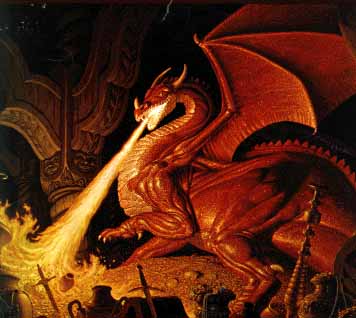Dream Design Docs – randomised plot points
By RagingLion 6 Comments
The practice of having multiple endings in games is now well established and indeed many games move beyond that to diverge to far greater degrees, with Heavy Rain being just such a recent exponent by even allowing the characters you control to get killed off before the end of the game based on your choices and actions, thus enabling different players to experience a quite radically different story (though I confess I haven’t played Heavy Rain since I don’t own a PS3). Only somewhat related to this, an idea occurred to me that it would be really interesting, and I think cool, to have randomised plot points within games, even regarding the larger plot points a game may feature. Allow me to explain what I mean by that phrase.
What if the events within a story were randomised so that they occur differently even if 2 different players were to make exactly the same decisions within their parallel games? The random elements could just be decided by the game’s programming right at the start of each unique playthrough no matter who you are, and this should be very possible technically. I’m talking about more than just random battle encounters within a JRPG or discovering the same space station stocked with different goods at different prices in Elite, but more significant narrative elements such as what the personality or allegiance of a character is or indeed how the big climactic moment at the end of a game unfolds. For example, if the killer in Heavy Rain could end up being different people depending on the random decision the game makes before you start playing.

Maybe this sounds like a really bad or just plain unnecessary idea to you at present. I’d probably agree if this was just implemented in games arbitrarily. However, random elements are already commonly implemented into other areas of game design, for which one of the reasons is to depict events that are unpredictable by their nature and cannot be perfectly understood in advance, causing the randomness to actually add a greater life-likeness/believability to the game in this aspect. In a similar way, randomising critical plot points within a game could allow a better simulation where the plot point being affected relates to something around which there is some doubt and uncertainty or to reflect the ease with which an aspect of the game could just as easily inhabit one state as another.
I came across a perfect example of this recently in the midst of thinking about this subject when reading an interview with the creator of Minecraft, Notch. He referenced an old game which he had played and loved called Darklands, about which he explained: “It was a take on Germany in the Middle Ages. When you start the game it’s random whether or not dragons exist. So you don’t know throughout the game – people keep referencing dragons, but they might or might not exist. It was how people in that time thought about the world.” How awesome is that! By randomising this plot point – this aspect of the game – it was creating a more powerful game simulation in which the doubt that was present in these fictional citizens of the game was also able to be mirrored in your own thoughts to a greater extent because there is this genuine possibility that the dragons didn’t exist at all. There are myriad ways in which this randomness could be utilised to reflect the fiction, though – here’s a few examples off the top of my head:
- Having a buddy NPC (e.g. mercenary/pirate) that you work alongside in the game for a considerable time who could potentially betray you at some point, thus heightening and representing the uncertainty behind the alliance (remember that these probabilities don’t have to be 50/50 choices and so the possibility here might be very slim, but still be enough to keep you on your toes).
- In an adventure-RPG game having one or more NPCs that you meet on your travels randomised in terms of how they treat you, and if they favour you or not, to emphasise the uncertainty present in how each new stranger encountered on a journey might respond to you.
- Having a game taking place within a setting where there are two warring factions, but for different people’s playthroughs having a few minor details changed that will just tip the balance slightly in suggesting either the first faction is more at fault or the second one is. This could then represent the intractability of deciphering who is ultimately to blame in certain conflicts and how the information can easily be different depending on the perspectives of those providing it.
- A big catastrophe is randomly determined to either occur and affect the world or not. There could be different missions associated with either of these possibilities and possibly something like the supply of some resource drying up or enemies being introduced or wiped out depending on the game type.
These kinds of possibilities genuinely excite me as I feel like they could aid in producing more immersive worlds in which you don’t turn off your brain as much while playing them because you suddenly have to account for a wider range of possibilities occurring (even if they don’t happen) and it would generally increase in games the handling of probability and risk in the way that is common to all of us living our real lives.

I can see some players having issues with this approach. Take example 4 above: reading it back to myself it rather reminded me of the decision players can make near the beginning of Fallout 3 of either saving or nuking Megaton since it is a catastrophic event that then has knock-on consequences of different groups of quests etc. becoming open to the player or not based on their decision. The key difference here is that it was the player’s decision and not the game’s to do this and surely this is the cooler and more compelling route to take, of the player getting to make these dramatic choices? I’m interested in getting to make those choices on occasion too, but it all falls into the power fantasy mentality behind games which I feel can actually be detrimental to the respect that gets given to the world I’m interacting with. Though this is another big topic in its own right I actually appreciate not always having ridiculous control of the world I’m inhabiting in order to emphasise that the world isn’t revolving around me. It lends the world more weight and I respect it more and in turn feel more immersed by it.
I wonder too if such randomised plot points might get players to feel the loss of what might have been in the case of the game having clearly telegraphed to them that one possibility was chosen at the expense of another one. Typically when playing a game we just accept the way things are and the settings around us but I wonder if gameworlds would feel different if we knew they could so easily have been different – if it would make them feel more dynamic and alive. I’m taking a guess here, but I think it’s very possible.
Writing this, I’ve realised in a way that none of this might really be necessary; that randomising key plot elements shouldn’t gain a game anything in theory for a person while they play it, because how would you know the game was doing this unless it specifically tells you in advance? Couldn’t the same effect of uncertainty in a player be recreated simply by a clever narrative which tricks a player into believing there are multiple possible states that a part of a plot could have inhabited, whereas there was actually only the one all along? Of course players might feel cheated later on if they find out the truth from another source, but that wasn’t the case while they were playing. I’m not sure I immediately believe games can get away with such narrative tricks effectively enough though and if a game broadcasts before I play it that it’s programmed such that these large elements of plot could be radically different by the use of randomisation, my suspicion remains that my experience playing it will feel that much richer.
I think these ideas have a lot of merit but are there any arguments that completely undermine my points? I confess I may not have succeeded in explaining them as clearly as I might have, though I have tried to. And given that I don’t have a cosmic overview of gaming are there more games than I realise that may have attempted such a system but I’m just unaware of them?
Further reading
The interview where I got the quote from Notch about the game with/without dragons. ( http://www.rockpapershotgun.com/2011/03/07/a-day-in-the-life-of-minecraft-creator-mojang/)
Randomness - blight or bane: A lengthy and deep article on the effect of including randomness in games, that shaped some of these thoughts. ( http://playthisthing.com/randomness-blight-or-bane)
From the Design Reboot blog, a game idea riffing off of the start of Unreal. The random elements and open-ended structure of the proposed game have stayed with me and grown on me since I first read it – definitely another of my dream games. Part 1 Part 2
[Edited because some links had disappeared]

6 Comments